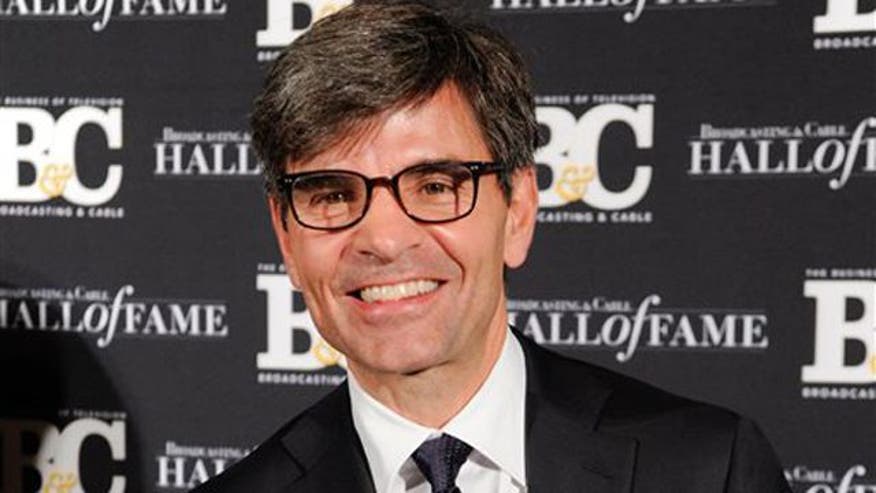
By failing to disclose his donations to the Clinton Foundation, George Stephanopoulos has damaged his credibility and tarnished his network.
But you know something? He’s got plenty of company.
What an awful couple of years it’s been for the news business, even by our already-tattered standards.
While ABC’s chief anchor has landed himself in a heap of trouble, this comes at a time when NBC’s chief anchor, Brian Williams, is serving a six-month suspension for fabricating an Iraq war tale and possibly embellishing other reporting exploits. And it comes weeks after Rolling Stone had to retract its horrifyingly irresponsible tale of a gang rape at the University of Virginia.
When these episodes erupt, critics carp about how this or that organization has suffered a grievous blow. What’s often missed is that all of us who practice journalism suffer as well, that it reinforces public doubts about whether the business is riddled with bias and conflicts of interest.
This was true back when Janet Cooke committed her fraud at the Washington Post. It was true when Stephen Glass was making up a bunch of articles at the New Republic. It was true when I exposed the serial fabrications of Jayson Blair at the New York Times and Jack Kelley at USA Today. It was true when CBS had to retract Lara Logan’s “60 Minutes” story on Benghazi. And it’s true every time there’s a new instance of plagiarism.
We all make mistakes, myself included, and how you handle those mistakes is crucial. Stephanopoulos didn’t realize he couldn’t be giving money to the family foundation of the guy he used to work for, whose wife is running for president, especially when he was covering the uproar over its tangled finances. But he also misjudged the negative reaction, and his initial statement apologized only for the lack of disclosure. A day later, he realized he had to apologize on camera, and for making the $75,000 donations as well. The former White House official also bowed out of ABC’s Republican presidential debate (although his hand may have been forced by GOP demands to yank the debate from the network).
When Williams was found to have invented the story of being shot at in a helicopter over Iraq, he issued a botched apology and said he’d be taking a few days off. Only later did NBC launch an investigation and remove him from “Nightly News” for six months.
Some of this gets caught up in the ideological wars, as liberals would surely include Mother Jones’ account of exaggerated talk about reporting by Bill O’Reilly, who has vehemently denied the allegations and denounced the accusers.
The crux of Stephanopoulos’ problem is that he’s never fully been able to shake his partisan past as a Clinton Democrat—and deepened that wound by giving money to the one charity that should have been off-limits to him.
Of course, the cable networks have hired plenty of political operatives (David Axelrod, Robert Gibbs, Jay Carney, Karl Rove), but they’re in the commentary business. And of course some people have made the transition from politics to straight news.
Tim Russert, who worked for Mario Cuomo and Pat Moynihan, did it, but he was an NBC executive before taking over “Meet the Press” and was famously tough on both sides. Tony Snow had been a speechwriter for George H.W. Bush before eventually taking over “Fox News Sunday”—and, of course, leaving to become Bush 43’s press secretary.
As someone who started interviewing Stephanopoulos in 1992, I can say that it takes a long time for a former political adviser to win the audience’s trust as a journalist—and just a short time to lose it. Viewers will have to judge in the future whether George is being as unbiased as possible, but they’ve already rendered their verdict on the mainstream media.
Click for more from Media Buzz
media-buzz
Media Buzz, hosted by Howard Kurtz, airs on Sundays at 11AM and 5PM ET on Fox News Channel.

